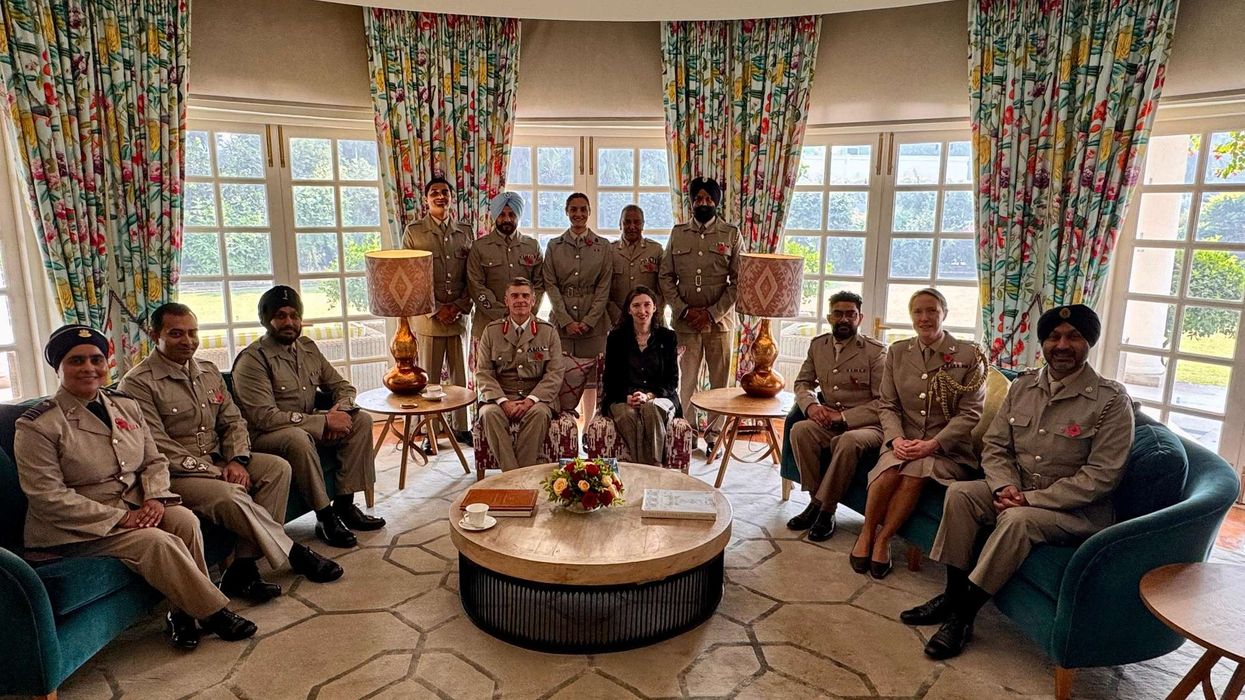By Barry Gardiner
Labour MP for Brent North“LUNCH at the Wig and Pen Club?”
That was my reward for helping a barrister friend out on a tricky maritime case in the 1990s. But nothing educated me about the old boy network of the legal profession quite so much as entering the gloomy interior of the club – built in 1625 as the home of the Gatekeeper of Temple Bar –, and listening to the tedious conversations.
The words “old boy network” could have been invented for the Wig and Pen Club. The talk was about wine, public schools and courtroom gossip – barristers exchanging juicy titbits from their cases with journalists. The high courts on the Strand flowed seamlessly into the newspaper publishing heart of Fleet Street in more ways than geographical.
People will say that times have changed; the old boy network is a thing of the past. But Eastern Eye’s exposé of racism in the judiciary reveals that it has not gone away, it has just gone underground.
What was once understood to be a station in life, reserved for those who were white and privileged, may have seen the sanctuary breached with the advent of a few BAME barristers and judges, but this has simply meant that the circle of waggons has got smaller and more exclusive.
One BAME judge explained the sense of exclusion: “They listen to Beethoven – I listen to rap.” There is a world of difference here and it is used to define people not on their ability, but on their class, culture and ethnicity. Here is a judge who has learned that to advance in the profession, you have to conceal your own cultural identity and honour that of the dominant group. Pretend to like Beethoven.
Yet our judiciary is supposed to be the very model of impartiality. These are the people we trust to be able to see beyond the surface, beyond the things that are irrelevant and to go straight to the truth: guilt or innocence, right or wrong. That is why this matters so much.
If our senior judiciary member cannot understand that listening to rap music does not make you less objective, less impartial, then this is the very definition of structural racism. They seem to consider that the identity of BAME people is something a BAME judge needs ‘to deal with’ in order to reach an impartial decision; while being a white, privileged, male is an objective position in itself – the quintessence of orthodoxy.
How well this was summed up by the BAME judge who said: “Behave like a white privileged man, and you’ll progress. But [the system] needs people who think differently because it affects the justice that people get. How can you be fair to people when you have no idea what they’re going through because you cannot imagine what it is to walk a mile in their shoes?”
It is natural to ask who that judge is, but the answer is shocking – it is someone who is too afraid to reveal their identity for fear of reprisal. So, while the discrimination may be unconscious, the defence of the system that perpetuates such bias is overt and vicious. “If you do whistleblow, you won’t progress”.
So, yes it does matter that the Judicial Executive Board has not a single BAME member, and yes, it does matter that the Judges Council which advises the lord chancellor has not a single BAME member.
But perhaps BAME lawyers might take heart from what happened to the Wig and Pen Club itself. In 2003 it closed its doors as a private club to become… an Asian restaurant.

















Old boy network in the judiciary ‘is alive and well’